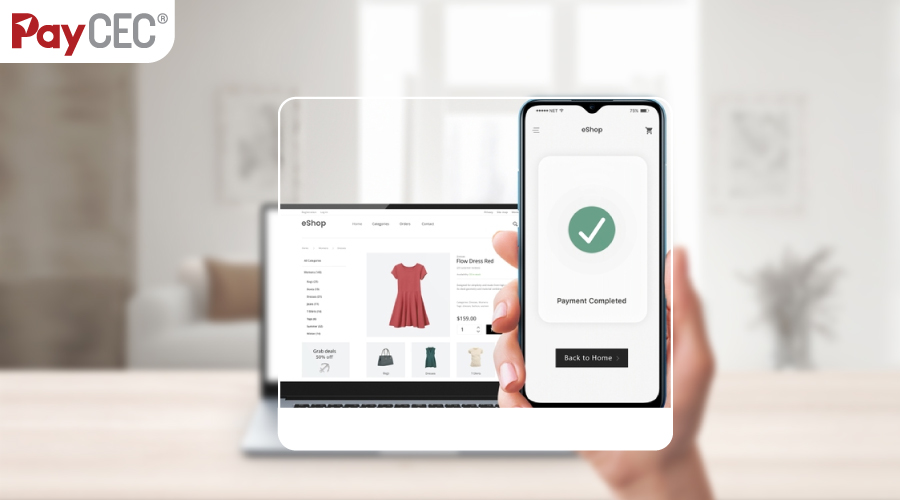Necessary Plugins For Your Custom Payment Gateway On Woo-Commerce Stores
Thứ tư, 03 Th04, 2024

Bài viết này thuộc chuyên mục Tin Tức của PayCEC
Theo dõi PayCEC - cổng thanh toán trực tuyến quốc tế để cập nhật các xu hướng thanh toán và các tin tức tài chính thương mại mới nhất
Nội dung bài viết
Being a place for performing payments, the payment pages on Woocommerce stores play the most important roles in generating revenue. Therefore, building, fixing, and improving user experience on the platform is considered an indispensable work of all business owners. Today, let’s learn how to do that with custom plugins for your custom payment gateways.
What Are Custom Payment Gateways Plugins For Woocommerce Stores?
So, plugins on Woocommerce are additional software extensions that are developed by third-party providers. They are installed into the platform’s online stores to add more features and enhance the available functions of the site in particular, as well as of the online business in general. Those plugins are tailored to meet the unique needs and requirements of any group of merchants, allowing them to customize their online businesses as they wish.

WooCommerce is best known as an all-in-one solution for people’s e-commerce stores.
Third-party plugins can enhance the features and capabilities of WooCommerce stores beyond what is provided out of the box. This could include advanced reporting tools, integration with other platforms or services, or optimization for specific marketing strategies like affiliate programs or loyalty rewards.
Plugins for custom payment gateways, similarly, are plugins integrated into your payment page in order to add subsidiary features or to strengthen the payment system and enhance the payment experience of the customer making purchases.
To this point, you may wonder, that if those features have so much potential to do more than the available payment gateway on Woocommerce, why didn’t the platform create their own plugins and give them to the merchants? Well, that is what we are going to get to in the section below.
Woocommerce Enables Plugins from Third Parties For Several Reasons
Like many other e-commerce platforms, Woocommerce also decides to offer custom plugins from third-party providers or their own development teams to their merchant partners. The reasons are possibly more than the benefits of money.
Installing additional plugins is one simple but indispensable step in building a strong and healthy payment system for a business’s Woocommerce stores. After choosing the right types of payment gateway to integrate into the store, businesses then need to decide which and how many plugins their payment page requires to run efficiently.
Merchants on WooCommerce may need to install custom plugins from third-party developers for several reasons.
Firstly, it comes from the matter of quality and the need to meet customer insights. Third-party plugins often offer specialized functionalities that may not be available in WooCommerce's core features or official extensions. These plugins cater to specific needs or niche markets, such as advanced product customization, subscription management, or complex shipping calculations.
Secondly, customization and flexibility are lacking in the current era. Third-party plugins often offer greater customization options than standard WooCommerce features. Merchants can choose plugins that align with their specific needs and preferences, tailoring their online stores to suit their branding, workflow, and user experience requirements.

Customer payment gateway plugins allowed on Woocommerce stores enable tailored integration for enhancing the user experience of merchant stores on the platform.
Last but not least is the cost-effectiveness. While some third-party plugins may come with a price tag, they can still be cost-effective compared to developing custom solutions from scratch. Merchants can leverage existing plugins that have been tested and refined by experienced developers, saving time and resources in the process.
Merchants on WooCommerce install custom plugins from third-party developers to access specialized functionality, enhance their online stores, meet industry-specific requirements, customize their sites, receive ongoing support and updates, and do so cost-effectively. These plugins offer flexibility and enable merchants to create robust and tailored e-commerce solutions that meet their unique business needs.
For example, merchants on Woocommerce can add plugins to their stores to build up a multiple-currency payment gateway system, which allows payment transaction acceptance in many different currencies worldwide.
The Need To Customize The Payment Gateway On Your Woocommerce Stores
While available features and functionality provided by Woocommerce allow merchants to basic needs and have enough conditions for running their business efficiently, the need to have a unique branding strategy forces online businesses to differentiate themselves in the marketplace.
Brand awareness and customer experience of a business are significantly affected by how that business presents itself both online and offline, and custom plugins for payment gateways on its e-commerce stores, which may appear little to the website visitors but would leave some unpleasant if made imperfectly, are a crucial part in the branding strategy.
The first thing is that has been mentioned above, that offering custom plugins gives WooCommerce merchants a competitive edge by allowing them to differentiate their stores from others. They can implement unique features and functionalities that set them apart in the market.

Integrating the right plugins into your Woo-commerce stores gives it the competitive advantage of branding by differentiating it from others on the market.
Another undeniable thing is, that certain industries may have unique requirements that necessitate specialized plugins, like an online food delivery service might require plugins for managing delivery zones, scheduling orders, or integrating with point-of-sale systems. In that case, custom plugins allow them to tailor their online store to meet these specific needs, which standard features or existing plugins may not address.
Besides satisfying industry-unique requirements, custom plugins also help online merchants to integrate with available payment systems unexpectedly well by enabling seamless integration between WooCommerce and these external systems, using multiple tools to manage other aspects of their operations, such as inventory management, CRM, or accounting software.
In terms of developing and improving, as businesses grow, their needs evolve. Custom plugins provide scalability by allowing merchants to adapt their online stores as their requirements change over time. This flexibility is crucial for long-term success.
In the end, custom plugins complement WooCommerce's core features and existing plugin ecosystem by providing merchants with the flexibility and customization options necessary to succeed in the competitive e-commerce landscape.

Woo-commerce plugins allow you to customize anything on your website, including shipping methods, payment types, checkout pages, user experience on your place, and more.
Customizing Payment Gateway Merchants On Your Woocommerce Stores With Tailored Plugins To Your Needs
Below are several popular and necessary custom plugins for the payment gateway system or the payment checkout page that merchants on WooCommerce often find valuable for their online stores.
WooCommerce PayPal Checkout Payment Gateway allows merchants to accept payments via PayPal directly on their WooCommerce checkout page, providing customers with a seamless and familiar payment experience. Similarly, there are Stripe for WooCommerce, Square for WooCommerce, and Amazon Pay for WooCommerce allows merchants to accept credit card payments securely and efficiently in their online stores.
For merchants offering subscription-based products or services, WooCommerce Subscriptions is an ideal plugin to set up recurring payments, manage subscription plans, and provide flexible billing options to customers. Similar to this, there is also WooCommerce Stripe Payment Gateway and PayPal for WooCommerce that provide customization options tailored to the needs of merchants using Stripe and PayPal respectively as their payment processors.
WooCommerce Authorize.Net CIM: This plugin integrates WooCommerce with Authorize.Net's Customer Information Manager (CIM), allowing merchants to securely store customer payment information for future transactions and recurring billing.
These custom plugins offer various features and functionalities tailored to the specific needs of merchants using WooCommerce, allowing them to optimize their payment processing systems and provide a seamless checkout experience for their customers.

Merchants can choose plugins that align with their specific needs and preferences, tailoring their online stores to suit their branding, workflow, and user experience requirements.
PayCEC - One Trusted Payment Gateway For Your E-commerce Stores
PayCEC is a payment gateway with expert and custom features, plus 24/7 customer support, and will do its best to fulfill your requirements
PayCEC appears to be positioned as a reliable and feature-rich payment gateway solution for e-commerce stores. Here's a breakdown of its key features and benefits based on the provided description:
- Trusted Payment Gateway: PayCEC positions itself as a trusted payment gateway solution, indicating reliability and security for processing online transactions.
- Expert and Custom Features: The platform offers expert-level features, suggesting that it provides advanced functionalities tailored to the needs of e-commerce businesses. Custom features imply flexibility and the ability to adapt to specific requirements or business models.
- 24/7 Customer Support: PayCEC emphasizes its commitment to customer support by providing assistance round the clock. This ensures that merchants have access to help whenever they need it, which is crucial for maintaining smooth operations.
- Tailored to Fulfill Requirements: PayCEC claims to make its best efforts to fulfill the requirements of its users. This suggests a customer-centric approach, where the platform aims to meet the unique needs and preferences of merchants using its services.
Overall, PayCEC was recently considered one of the best payment gateway solutions for small businesses with a focus on reliability, customization, and customer support. For e-commerce businesses seeking a payment processing solution, PayCEC may be worth considering based on its highlighted features and benefits. However, merchants should conduct thorough research and possibly trial the platform to ensure it aligns with their specific needs and expectations.
About PayCEC
PayCEC was established in response to the growing need of businesses to accept online payments more quickly and easily. In the new media era, our payment flow has evolved to work seamlessly and effectively across all platforms and devices. We pride ourselves on combining superior technology with first-class customer service.
PayCEC is a truly global payments platform that not only allows customers to get paid but also withdraws funds to their business accounts in various currencies.
We have created an open and secure payments ecosystem that people and businesses choose to securely transact with each other online and on mobile devices.
PayCEC Team
Những Câu hỏi Thường gặp
What is a custom payment gateway?
A custom payment gateway refers to a payment processing solution that is tailored or customized to meet the specific needs, requirements, or preferences of a particular business or application. Unlike standard or off-the-shelf payment gateways that offer a predefined set of features and functionalities, a custom payment gateway is designed and developed uniquely for a specific merchant or organization.
Custom payment gateways are often built by experienced developers or third-party service providers who specialize in payment processing solutions. These developers work closely with the merchant to understand their business model, workflow, and unique requirements. Based on this understanding, they develop a payment gateway solution that integrates seamlessly with the merchant's website or application and provides the desired features and functionalities.
Can I create my own payment gateway?
Creating your own payment gateway is possible but requires significant technical expertise and adherence to industry standards and regulations. Here's a concise overview of the process:
- Research and Planning: Understand payment processing requirements and regulations in your target market. Identify gaps in existing solutions to address with your custom gateway.
- Design Architecture: Define the architecture, considering security, scalability, and compatibility with e-commerce platforms.
- Develop Payment Processing Logic: Implement functions like authorization, capture, settlement, and refunds, ensuring compliance with PCI DSS for secure handling of cardholder data.
- Integrate with Payment Networks: Establish connections with payment networks (e.g., Visa, Mastercard) using their APIs or SDKs to facilitate transactions.
- Implement Security Measures: Incorporate encryption, tokenization, and fraud detection to protect sensitive data and prevent unauthorized access.
- Create Developer Documentation: Provide comprehensive documentation and resources to guide integration with e-commerce platforms or custom applications.
- Test and Quality Assurance: Thoroughly test the gateway under various scenarios and load conditions, addressing any vulnerabilities or weaknesses.
- Ensure Regulatory Compliance: Comply with regulations like PCI DSS, GDPR, and local financial laws governing payment processing.
- Launch and Support: Launch the gateway, providing ongoing support to merchants and developers. Continuously update and improve the gateway based on feedback and evolving needs.
While creating your own payment gateway offers opportunities for innovation and customization, it's a complex undertaking that requires careful planning, development, and ongoing maintenance.
How do I create a free payment gateway website?
Creating a completely free payment gateway website can be challenging due to the costs associated with payment processing, security measures, and maintenance. While you might be able to offer some aspects for free, such as basic account setup or limited transactions, sustaining a payment gateway service without any revenue streams can be difficult in the long run. However, if you're determined to offer a free payment gateway, here are some approaches you could consider:
- Limited Free Tier: Offer a basic version of your payment gateway for free with limited features or transaction volumes. Users can upgrade to a paid plan for access to advanced features or higher transaction limits.
- Ad-Supported Model: Generate revenue by displaying advertisements on your website or within your payment gateway interface. This can help offset some of the costs associated with running the service.
- Freemium Model: Offer a free version of your payment gateway with basic features, and charge users for access to premium features or additional services.
- Partnerships and Referral Programs: Partner with other businesses or financial institutions and earn commissions for referring users to their services.
- Donations or Sponsorships: Allow users to support your service through voluntary donations or seek sponsorships from businesses or organizations interested in promoting their products or services to your user base.
Keep in mind that even if you offer a free payment gateway, you'll still need to invest in infrastructure, security, compliance, and customer support. It's essential to carefully consider your business model and revenue strategy to ensure the sustainability of your service in the long term.
Tin tức
Việc kinh doanh
Các sản phẩm

chúng ta là ai
về chúng tôi
Chúng tôi rất hân hạnh được phục vụ với tư cách là đối tác kinh doanh và nhà cung cấp dịch vụ tài chính đáng tin cậy của bạn trong ngành và các dịch vụ liên quan đến kinh doanh khác. Với sự giúp đỡ của đội ngũ nhân viên chuyên nghiệp của chúng tôi, để giúp các thương nhân đạt được mục tiêu phát triển và mở rộng thị trường kinh doanh quốc tế.
Luồng thanh toán của chúng tôi đã phát triển trong thế giới thương mại điện tử để hoạt động liền mạch và hiệu quả trên tất cả các nền tảng và thiết bị. Chúng tôi rất vui khi kết hợp công nghệ với dịch vụ khách hàng, để giải quyết các mối quan tâm của bạn vào lúc này.
PayCEC là một mạng lưới thanh toán toàn cầu, không chỉ cho phép người bán được thanh toán ngay lập tức và an toàn mà còn cho phép họ rút tiền bằng nhiều loại tiền vào tài khoản công ty của họ.
Chúng tôi sẽ sớm liên lạc lại với bạn.



































 Quy trình
Quy trình